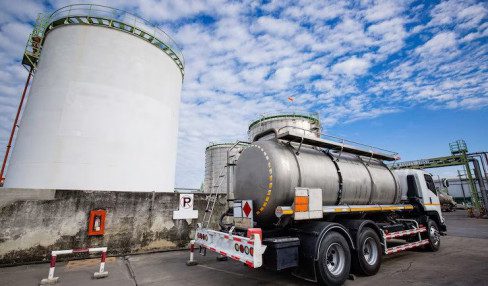Tips For Fleet Managers: Handing Truck Accidents
5 Mins Read
Published on: 05 April 2024
Last Updated on: 07 September 2024

toc impalement
Trucking accidents can be costly and negatively impact a fleet’s bottom line. Therefore, fleet managers must first focus on prevention to handle these accidents.
Senior management pressures work truck fleets to cut expenses, leading to improvements in fuel efficiency, vehicle acquisition strategies, extended lifetimes, and reduced truck downtime.
However, downsizing the fleet department has made their jobs more challenging. A preventable accident occurs when a driver fails to act reasonably expected to prevent it.
To determine if a driver’s actions were reasonable, assessing whether they drove defensively and demonstrated acceptable skill and knowledge is essential.
This can be determined by a company-adopted definition, setting a goal for safety management programs.
Why Do Fleets Need Accident-Handling Efficiency?

Fleet drivers often overestimate their abilities, leading to careless driving and high speeds. Moreover, the National Safety Council identifies distracted driving and speeding as two of the most significant reasons for fleet accidents.
Distracted driving, particularly among company drivers, is a higher contributor to reported accidents due to multitasking and the use of cell phones. This has led to distracted driving surpassing drunk driving as the leading cause of accidents.
Companies are partly responsible for this issue, expecting their drivers to work 100% of the time on the road, which results in fleet drivers driving more than average US drivers.
However, drivers are forced to multitask due to pressure and stress from higher management. Moreover, they must stay connected to the company and force drivers to multitask.
Managing Truck Accidents Within Your Fleet

Given below are some of the major tips that can help you manage truck accidents within your business fleets—
1. Take Preventive Measures
A fleet safety program should include a comprehensive policy that addresses current and emerging safety issues. These issues mostly include cell phone use and texting.
Consequently, fleet managers must distribute the policy electronically, with an open-book test to ensure drivers have read it.
Next, arrange training for drivers on defensive driving habits, including online lessons when risk scores pass defined thresholds or proactively to address emerging safety issues.
Maintain electronic files on fleet driver behavior in a dedicated application. This folder must include comprehensive data like the following:
- Motor vehicle records.
- Accident history.
- Traffic camera violations.
- Safety-policy-specific violations.
- Public driver complaints.
- Telematics data, if available.
Furthermore, a scoring system should define driver risk levels, with drivers’ files updated promptly after accidents and convictions.
Consequences for higher risk levels should include remedial lessons, driving privilege limitations, and dismissal.
Annual reviews should include driving records, and senior management should support fleet safety initiatives.
2. Ensure Legal Protection
Legal protection is crucial for fleet management, protecting businesses from penalties, fines, and potential disruptions.
Fleet management regulations vary across jurisdictions but generally involve vehicle registration, licensing, and auto insurance coverage.
Proper registration ensures every vehicle is legally registered according to the region’s laws, while licensing ensures drivers have a valid license for the type of vehicle being driven.
Auto insurance protects businesses from financial losses from accidents, theft, or vehicle damage.
In an accident, seeking compensation for damages is essential to recover losses and maintain financial stability. Louisville truck accident lawyers can assist in legal proceedings, assess damages, and seek compensation for fleet accidents.
They can manage media inquiries, public statements, public relations, and legal compliance.
Moreover, a lawyer can review fleet management practices, ensure safety regulations, and implement risk management strategies to prevent future accidents.
3. Planning And Maintaining Vehicle Health
Effective management of repairs is crucial to minimize the impact of accidents. Fleet managers should use a network of high-quality repair shops, ensuring priority attention and discount pricing.
They should also identify temporary replacement vehicles to keep drivers productive during the repair process.
Fleet managers should use shops that don’t charge for storage to avoid charges for storing vehicles that end up being repaired elsewhere.
Gathering essential data quickly is critical to minimize downtime. Fleet drivers should be equipped with accident data-collecting forms.
Reviewing repair estimates for potential savings on parts and labor is crucial. The fleet’s accident management system should allow managers to compare current forecasts with previous ones, ensuring the lowest parts prices.
Prompt repairs are essential to avoid wasted time or productivity. Requesting a tear-down estimate for extensive damage can reduce cycle time and replacement rental charges.
Maintaining close contact with the repair shop ensures timely completion and driver pickup.
4. Implement Tracking Technology
GPS tracking is vital for transportation and distribution companies, enabling efficient fleet management and revenue generation.
It provides crucial data about individual vehicles and large fleet operations, enabling businesses to make informed decisions and improve efficiency.
Modern GPS tracking tools work through cloud-based platforms and GPS trackers attached to fixed assets like cars, HGVs, and vans.
You can achieve real-time tracking of vehicles using handheld GPS devices or a cloud-based app. Thus, these apps allow users to view locations across desktops, tablets, and mobiles.
Fleet managers can gain a detailed view of all company vehicles in real time, reducing maintenance costs and identifying problems for preventive maintenance.
GPS tracking can improve driving standards and compliance, incentivizing safe drivers and providing additional driver safety training.
Additionally, real-time GPS data can help businesses recover lost or stolen vehicles, providing valuable information for police recovery.
5. Wrecked Vehicle Handling Efficiency
Fleets can still profit from a total loss by selling the totaled vehicle for spare parts or repair.
To achieve this, fleet managers should not rely on a small number of potential buyers, as there is a market for totaled vehicles.
They should use a regional and nationwide buyers network to secure the best prices.
Additionally, fleet managers should communicate with potential buyers electronically, sending requests to all possible buyers simultaneously when declaring a vehicle a total loss.
Finally, fleet managers should ensure that the buyer secures salvage titles, following state or provincial procedures. This approach helps offset the loss of the vehicle to the fleet.
Enable Efficient Management Against Adversities

Preventative measures can reduce accidents, but they are not a cure-all. Truck drivers should be prepared and know how to handle them. Trucking insurance provides coverage, but doing things correctly can help with liability.
Accidents can occur due to the truck driver’s error. Therefore, in-vehicle cameras can provide an unbiased perspective of the accident.
Furthermore, each vehicle in the fleet should have the right road safety and emergency kits, and truckers should have an accident report form and know how to fill it out.
If a truck accident occurs, drivers should stop, turn on hazard lights, check themselves and other involved vehicles for injuries, report it to 911, and contact the truck insurance company.
Read More:


















Comments Are Closed For This Article